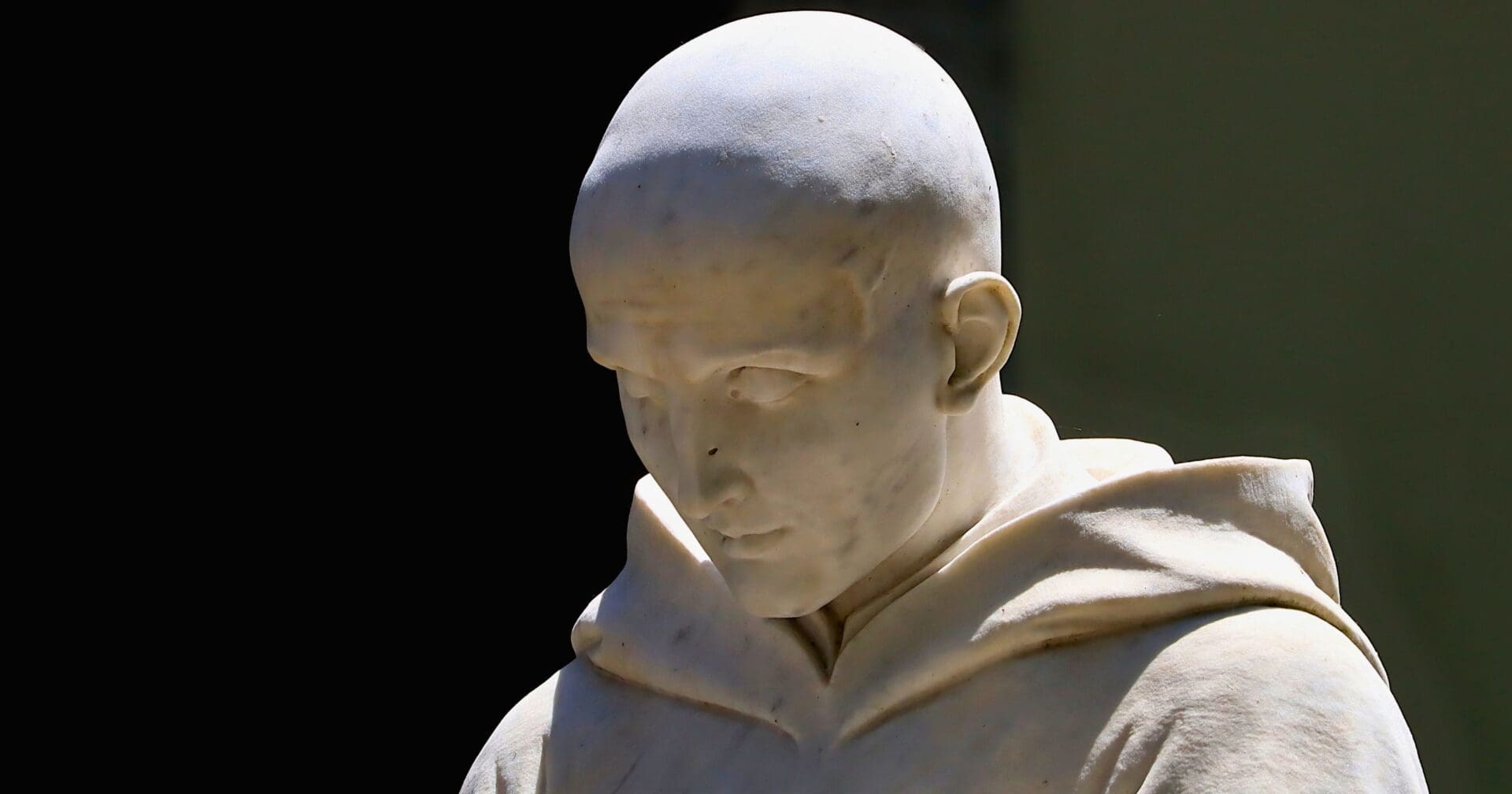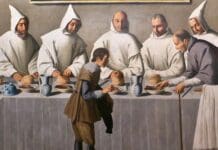Born in Cologne to the esteemed Hartenfaust family, Saint Bruno was a figure of devotion, discipline, and relentless pursuit of spiritual fulfillment. His early education at the Cathedral school in Rheims laid the foundation for his profound theological insights. By 1056, Bruno had become a professor of theology in Rheims, and his reputation grew when he became the head of the school a year later.
In a dramatic turn of events in 1076, Bruno, along with several priests, found himself exiled from Rheims. They had openly criticized Archbishop Manasses, accusing him of being unsuitable as a Papal Legate. Although Bruno returned to his native Cologne, he was soon drawn back to Rheims in 1080 after the deposition of Manasses. The people’s choice for the next archbishop was clear: they wanted Bruno. However, his heart yearned for a more secluded, spiritual path.
Bruno’s spiritual journey took him first under the mentorship of Abbot St. Robert of Molesmes, and later, with six fellow seekers, to the rugged terrains of La Grande Chartreuse in Grenoble. It was here, under the guidance of Bishop St. Hugh of Grenoble, that the Carthusian Order was born. In this isolated haven, they constructed an oratory and individual hermitages, imbibing a strict interpretation of the Rule of St. Benedict. Embracing silence, abstaining from meat, and living a life of prayer, they committed themselves to a rigorous monastic life.
The essence of the Carthusian Order lies in its unwavering adherence to the principles laid down by Bruno. Their commitment to poverty, manual work, prayer, and manuscript transcription stood as a testament to their unwritten yet deeply ingrained rule.
Bruno’s renown reached Pope Urban II, a former student of his. In 1090, the Pope summoned Bruno to Rome, seeking his counsel in clerical reformation. While in Rome, Bruno founded St. Mary’s at La Torre in Calabria. Despite being offered prestigious roles, Bruno’s desire for a hermetic life remained undeterred.
A scholar at heart, Bruno penned commentaries on psalms and St. Paul’s epistles. Though he was never formally canonized, his impact on the spiritual realm was undeniable. In 1514, Pope Leo X allowed the Carthusians to honor his feast, and by 1623, his name graced the Roman calendar.
Remembered on October 6, Saint Bruno stands as a guardian against diabolic possession and a patron for Ruthenia, a region spanning parts of today’s Russia, Ukraine, Belarus, Slovakia, and Poland.


















Fantastic goods from you, man. I’ve bear in mind your stuff prior
to and you’re just extremely fantastic. I actually
like what you’ve got here, really like what you’re stating and the way wherein you are saying it.
You are making it enjoyable and you continue to care for to stay it smart.
I cant wait to learn much more from you. That is actually a tremendous
site.
Are you interested in working from the comfort of your home? We are seeking motivated individuals like you to join our team for remote opportunities. ed All you need is an Internet connection and a computer or mobile device.
comfort Apply Click……. Regular Payouts
[…] uCatholic […]
St. Bruno pray for us beautifully.
Saint Bruno, pray for us!
St. Bruno, pray for us.
O holy Saint Bruno, let me love God and live my life in the same way that you prayed:
Lord, you alone are God; You alone are Lord.
Help me not to be ensnared by the glitter and foibles of this world, but to be consumed with attaining the next. AMEN.
Saint Bruno pray for us amen
Not me. Not we. Him.
Help me recall this frequently throughout each day.
Saint Bruno, pray for us. Amen.
St Bruno pray for me to God spirit to abound with me so I can be able to serve Him and also give me a guarding angle that will always control me not to do bad and pray for us all …..Amen
Are you interested in working from the comfort of your home? We are seeking motivated individuals like you to join our team for remote opportunities. ef All you need is an Internet connection and a computer or mobile device.
comfort Apply Click……. Regular Payouts